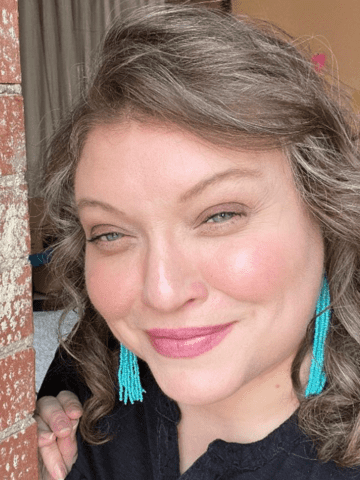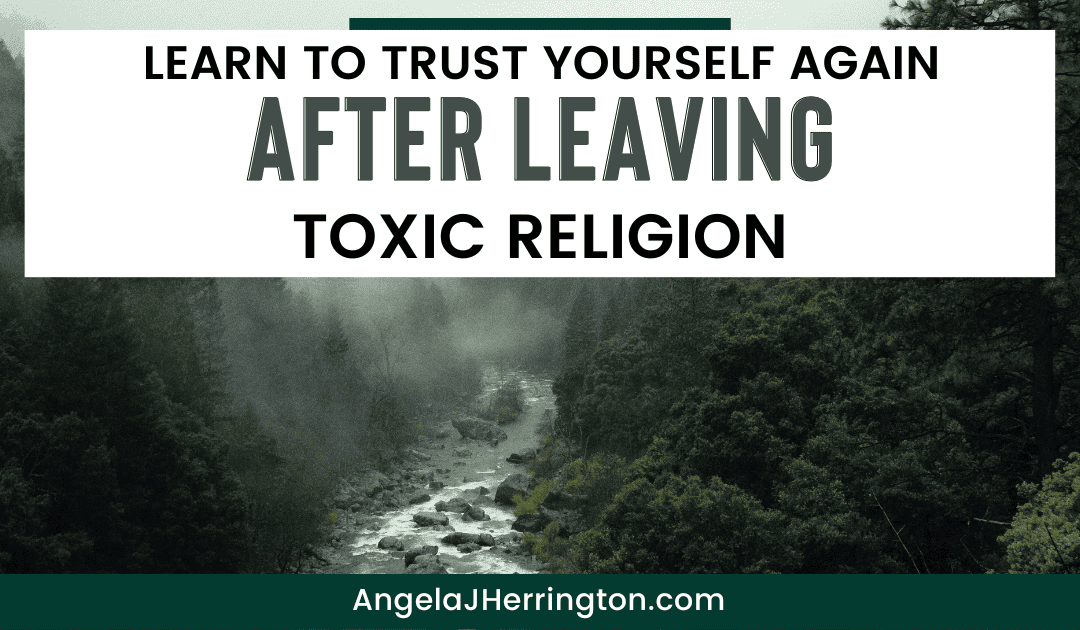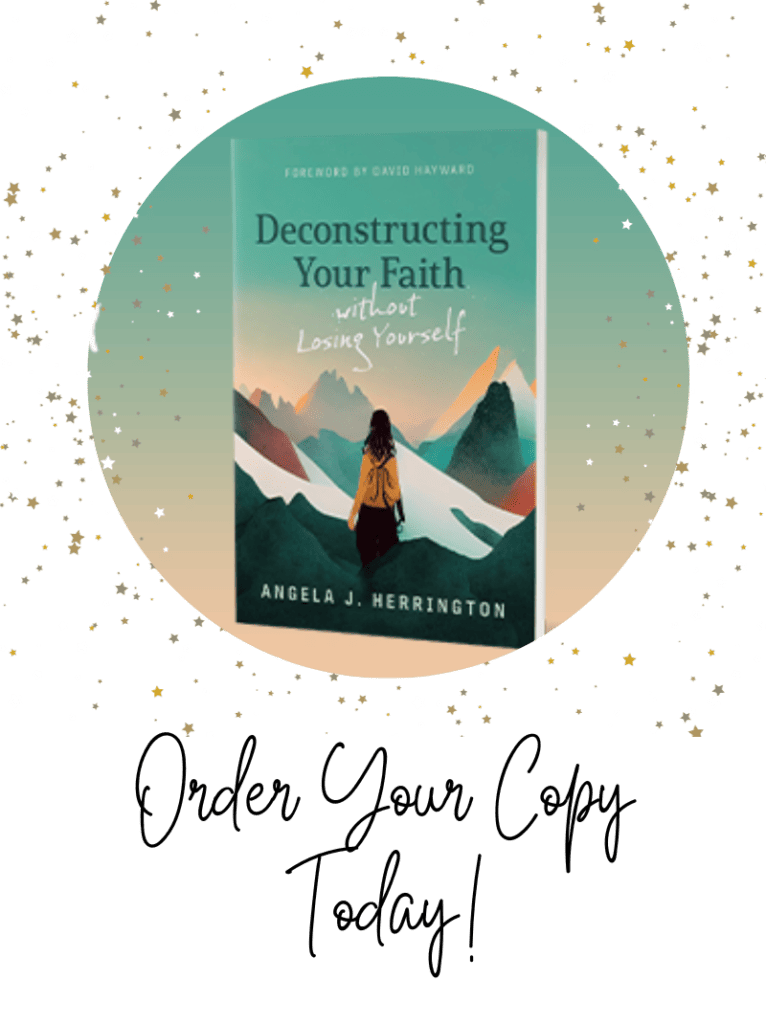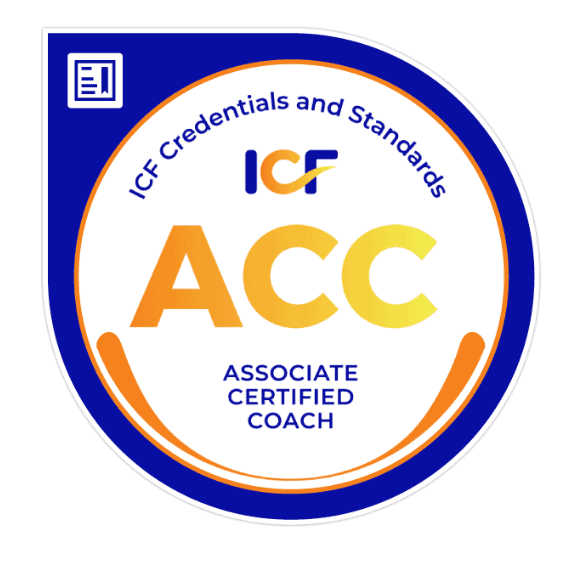Leaving a traumatic religious experience usually leaves people feeling lost, confused, and unsure of who you are and what you believe.
Religion makes up a significant portion of your identity, and leaving it behind leaves a giant hole in who you are. But fear not, my friend. Today we’re going to chat about how to learn to trust yourself after leaving toxic religion.
Learning to trust yourself after leaving toxic religion is possible, and it starts with these simple steps:
1. Recognize that the trauma you experienced was not your fault.
You were not in control of the situation, and it’s okay to feel angry, sad, or confused about what the Church taught you and why you are deconstructing while so many people you love still believe. It’s also okay to take your time to heal and process your feelings.
Don’t let anyone pressure you into moving on before you’re ready. One of the hallmarks of a traumatic religious experience is the Church and Christians telling you what to think and believe. That background makes it hard to trust your thoughts and feelings. But here’s the thing: it’s okay to question. In fact, it’s healthy. Let yourself ask hard questions and explore your doubts and beliefs. Be kind to yourself as you do so because it will feel reeeeeeally uncomfortable pushing back on the limits and stories they told you.
Discomfort is completely normal and a healthy part of the process. Don’t get held up on being right because you might be in the unknown for a while.
Remember that you’re doing the best you can with what you have. If something doesn’t feel right to you, trust your instincts. You don’t have to justify your feelings to anyone else. Remember that toxicity is a human issue, not just a Church one, so take everything with a grain of salt.
It’s wise to keep in mind that no one knows all the answers, especially after leaving toxic religion. It’s a common tendency in deconstruction to throw away Christianity when leaving toxic religion and then grab onto a new belief with a fierce hold. Remember that you are safe, you can trust your body, and you will be okay.
Giving yourself those reminders will come in clutch when your gut gives you a nudge to move toward something or get out as fast as possible.
2. Take baby steps and celebrate every single bit of forward movement.
Rebuilding trust takes time, so start with small things and work your way up. For example, if you’ve always been taught to follow the rules, try breaking a minor one (like staying up past your bedtime) and see that the world doesn’t end. Trusting yourself again takes time.
It’s pretty essential to be patient with yourself and take things one step at a time. Don’t feel like you have to have everything figured out right away. Instead, focus on small wins and celebrate your progress.
3. Seek out supportive people.
Surround yourself with people who love and accept you for who you are without judgment or pressure. Whether it’s a support group, an online community, or just a group of friends who understand what you’re going through and are also leaving toxic religion or who have created lives they love outside of the Church, people like this can make all the difference. One of the best parts of the internet is finding people just like you all around the world.
Need help to figure out where to start? I created my free Facebook Group where you can ask questions and be a part of growing conversations around deconstruction.
Contrary to what you may have heard, being around people who make you feel good about yourself is a good thing, not a sign that you don’t have accountability and are on the highway to hell.
4. Widen your lens and get curious about what you haven’t seen yet.
Give yourself permission to explore and see what else is out there. Think of all your experience as books in a library. You have many books that clearly state what you should believe about the world; now it’s time to balance out that bookshelf. Find other voices, learn about different religions (or even denominations) and belief systems to find what resonates with you. Remember that believing in something different from what you were taught is okay.
If you are curious about where to start with books, check out this list I made. Books, not your favorite? That’s okay; here’s a list of some of the deconstruction podcasts I recommend.
5. Practice radical self-care and generous self-love.
Trauma takes a toll on both our physical and emotional well-being. It sounds trite, but it’s true. Taking care of yourself while you deconstruct your faith might look like getting enough sleep, eating well, exercising, or doing things that bring you joy. You can discard the martyr complex for complex proteins and a Pinot Grigio without guilt.
Remember, trust takes time to build, and it’s okay to have setbacks along the way when you are leaving toxic religion.
But with patience, self-compassion, and a willingness to learn and grow, you can learn to trust yourself again after traumatic religion. I believe in you. You are strong, capable, and worthy of love and respect. You’ve got this, love.
What NOT to Waste Your Energy On During Faith Deconstruction
While it’s important to focus on positive steps for rebuilding trust in yourself after leaving toxic religion, it’s equally essential to be mindful of certain pitfalls that can hinder your progress. Here are some things to avoid as you navigate this journey:
- Don’t Rush the Healing Process: Healing from religious trauma takes time, and it’s essential to give yourself the space and grace to heal at your own pace. Avoid the temptation to rush through the process or pressure yourself to “get over it” before you’re ready. Allow yourself to feel and process your emotions fully, even if it takes longer than you expected.
- Avoid Isolating Yourself: While it’s natural to want some time alone to reflect and process your experiences, isolating yourself completely can exacerbate feelings of loneliness and alienation. Seek out supportive communities, whether online or in person, where you can connect with others who understand what you’re going through. Remember, you don’t have to go through this journey alone.
- Don’t Neglect Your Physical and Emotional Well-Being: Deconstructing your faith can be emotionally and physically draining, so it’s essential to prioritize self-care during this time. Make sure you’re getting enough sleep, eating well, and engaging in activities that bring you joy and relaxation. Don’t hesitate to seek professional support if you’re struggling with your mental health.
- Avoid Engaging in Self-Destructive Behaviors: It’s common for individuals leaving toxic religion to experience feelings of guilt, shame, and self-doubt. In some cases, this can lead to self-destructive behaviors such as substance abuse, self-harm, or unhealthy relationships. Be mindful of these tendencies and seek help if you engage in harmful behaviors.
- Don’t Suppress Your Doubts and Questions: One of the most significant barriers to rebuilding trust in yourself after leaving toxic religion is suppressing doubts and questions that arise during the deconstruction process. Allow yourself to explore these doubts openly and honestly, without judgment or self-censorship. Remember that questioning is a natural part of growth and learning.
- Avoid Comparing Your Journey to Others: Every individual’s journey of faith deconstruction is unique, and there’s no one-size-fits-all approach to rebuilding trust in yourself. Avoid comparing your progress to that of others or feeling like you need to measure up to someone else’s standards. Trust that you’re doing the best you can with the resources and support available to you.
It’s okay to make mistakes and get it wrong as you deconstruct your faith and think about leaving toxic religion.
By being mindful of these potential pitfalls and taking proactive steps to avoid them, you can navigate your journey of rebuilding trust in yourself with greater resilience and self-awareness. Remember, progress isn’t always linear, and setbacks are a natural part of the process. Be gentle with yourself, and trust that you can overcome the challenges that arise along the way.
Hungry for more? Here are a few popular faith deconstruction related posts you’ll find helpful:
What Does it Mean to Deconstruct Your Faith?
Sometimes You Have to Leave the Church to Find God
Is Deconstructing Your Faith Biblical?
8 Reasons Why Christians Should be 2SLGBTQIA+ Allies
Deconstructing While Parenting
How to Get Out of Toxic Religion
The Best Faith Deconstruction Conferences & Online Summits

Angela is a Faith Deconstruction Coach and host of The Deconstructing Faith Summit who helps people break free from toxic religious culture & empowers them to recover from #churchhurt. She has led online ministries for a decade, enjoys working with clients 1:1, in groups, and is a dynamic conference speaker. She’s a Lark’s Song Certified Life Coach who reaches thousands of people in 40+ countries each month on Facebook, IG, Twitter, Pinterest, and her blog.
She’s a firstborn, Enneagram 8, Gen Xer who loves to question everything. She holds a BA from Indiana Wesleyan and a Masters in Leadership from Wesley Seminary. Her graduate research project focused on leadership development and opportunities for Gen X women in the US church.
Angela and her unique online ministry are featured in Lyz Lenz’s 2019 book God Land: Story of Faith, Loss, and Renewal in Middle America. She has published articles in Hope for Women and HOPE is Now magazines. She has been featured in The New Republic, Publisher’s Today, and Religion News Service.
Her first book, Deconstructing Your Faith Without Losing Yourself, Will be published by Eerdmans in February 2023.
Angela is also a wife, mom to 5, and a proud resident of Marion, Indiana with her family when they’re not traveling the US in their RV.





